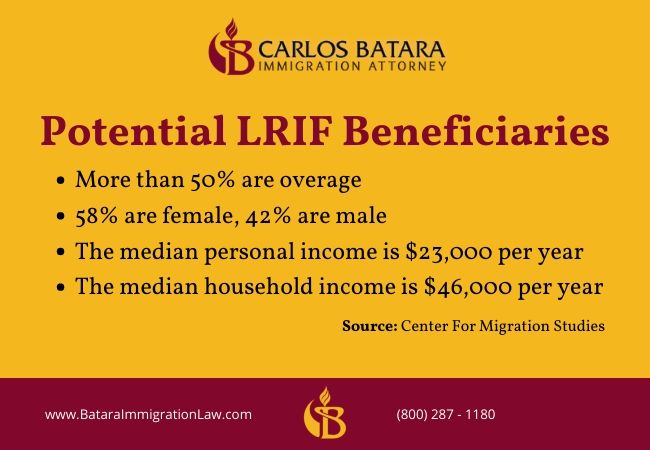
On December 20, 2019, immigrant advocates celebrated the birth of the Liberian Refugee Immigration Fairness program.
In their view, the precarious nature of laws which had kept Liberians in the United States had come to an end. Seven months later, Liberian immigrants began to worry about the program’s termination.
On December 30, 2020, shortly before a new year was ushered in, the program was extended to December 20, 2021.
As sages have long noted, good fortune is what results when preparation meets opportunity.
Neither the Liberian community nor the U.S. government were ready for the new program when it was initially announced. Both failed to seize the moment.
Hence, the legacy of a potentially great immigration program might never have see the light of the day without the late reprieve.
The Liberian Refugee Immigration Fairness Program Is Born
The birth of the Liberian Refugee Immigration Fairness Act (LRIF) was unexpected.
For more than two decades, Rhode Island Senator Jack Reed had tried to pass the Act every year. Each attempt failed.
In December 2019, as the ranking Democrat on the Senate Armed Services Committee, Reed inserted the Act into the National Defense Authorization Act (NDAA), a massive military spending bill, that easily passed Congress and signed by the president three days later.
Prior to LRIF, Liberians had no path to legalization – that is, no path to legal residency.
Although they had been beneficiaries of various immigration programs for almost 30 years, from 1991 to 2019, the programs were dead-end in nature.
The Long Ordeal Of Liberian Immigrants From TPS To LRIF
In 1989, civil strife in their homeland caused thousands of Liberians to flee to the United States.
On November 29, 1990, as part of the Immigration Act of 1990 (IMMACT), Congress established the Temporary Protected Status program. Just four months later, in March 1991, Liberia was one of the earliest nations granted TPS benefits.
Unlike the Liberian Refugee Immigration Fairness program, TPS is not a legalization program. It does not create a path to lawful permanent residence for immigrants.
The main benefits, protection against deportation and work authorization, last only as long as the country’s approval for Temporary Protected Status remains in effect.
In September 1999, the TPS designation for Liberia was terminated. But Liberians were given Deferred Enforced Departure, another program that offers only short-term benefits and no path to permanent residence.
In October 2002, Liberia was re-designated for TPS, a status which continued until 2007. Since that time, Liberia was again accorded DED extensions which lasted until March 31, 2018.
A few days before the program’s termination, DHS announced it would begin a 12-month wind-down period of Deferred Enforced Departure for Liberians, starting April 1, 2018, and running through March 31, 2019.
On March 28, 2019, the wind-down period was extended for an additional 12 months, up through March 31, 2020.
To the surprise of many observers, just four months before Liberians would be subject to removal from the United States, LRIF was enacted.
What Is The Liberian Refugee Immigration Fairness Act?
The Liberian Refugee Immigration Fairness Act is the first legalization program passed by Congress in several years.
The program enables Liberians immigrants who have been present in the United States since November 20, 2014 – as well as their spouses and unmarried children – to become green card holders, without having to return to their country of origin.
In order to qualify, Liberans must apply by December 20, 2021 and meet the following requirements:
- Have been continuously present in the U.S. since November 20, 2014
- Be admissible or eligible for a waiver of inadmissibility or another form of relief
- Have not been convicted of an aggravated felony or two or more crimes of moral turpitude
- Have not persecuted others on account of race, religion, nationality, membership in a particular social group, or political opinion
Besides these general requirments, the Liberian Refugee Immigration Fairness Act created several unique provisions for applicants.
Special LRIF Green Card Provisions
The purpose of LRIF is to facilitate a smooth pathway to permanent residence for Liberians who had lived in the United States a long time. Toward that end, the following rules seek to ease their journey to winning a green card:
- Unlawful entry and unlawful presence provisions are inapplicable.
LRIF allows Liberian immigrants who have been continuously present in the United States since November 20, 2014 to apply. Their dependent family members, spouses and unmarried children, do not need to meet this requirement.
Brief, casual, and innocent absences from the U.S. less than 180 days in the aggregate does not break the continuous physical presence requirement.
- Non-Liberian spouses of Liberian applicants are eligible for LRIF.
Spouses of Liberian immigrants do not need to citizens or nationals of Liberia to apply for Liberian Refugee Immigration Fairness Act benefits.
- The public charge rules do not apply to LRIF applicants.
Applicants seeking green card status under the Act are exempt from the public charge provisions of inadmissibility under INA section 212(a)(4).
- Liberians with existing orders of deportation does not preclude LRIF relief.
Despite prior orders of removal, deportation, exclusion, or voluntary departure, Liberians can still apply for LRIF adjustment. Moreover, in order to file an application, they are not required to file a motion to reopen the court order issued against them.
- Liberian applicants are eligible to apply for U.S. citizenship immediately after a grant of permanent resident status.
When they win a grant of permanent residence, the date of their legal status will be “rolled back” to either November 14, 2014 or their earliest arrival to the U.S.
Since all LRIF applicants must meet the continuous presence requirement dating back to November 14, 2014, their roll back dates will be at least six years backwards. This means they can apply for naturalization without further delay.
For eligible family members, their roll back dates are either the USCIS receipt date for their permanent residence applications or the date of their earliest United States arrival.
Political And Administrative Kinks To Liberian Permanent Residence
At the time of LRIF’s birth, this seemed like great news – beyond the Liberian community. The ideal of creating programs which provide an opportunity to earn residency was once again alive and well.
For recipients of programs like TPS and DACA, the news was like fresh sunlight on the first day of spring, where only cold, dark, and drab political news had existed for far too many years.

Fast forward a few months. The narrative changed.
According to a recent report by the Center For Migration Studies, approximately 10,000 Liberians are eligible to adjust their status to permanent resident under LRIF. Nearly 300 family members are eligible as the spouses and children of LRIF beneficiaries to become green card holders.
Yet, by July 2020, only 1,177 Liberians had applied for permanent residence under LRIF.
This amounts to merely 12% of 10,000 potentially eligible applicants.
Not one application had been granted by that date.
Worse, time had started to run out.
The LRIF regulations specified that applicants had to file their paperwork by December 20, 2020.
So why the low participation?
To begin, the government did not provide guidance on how to apply until April 7, 2020.
By then, COVID-19 had forced the closure of USCIS offices. Such information was not readily accessible.
Once USCIS reopened, the agency faced severe backlogs of all types of cases – with new programs sitting lower on their totem poll.
Equally problematic, the recent rise in COVID-19 cases across the country threatened to shut down offices in various states once more.
Further, USCIS was facing an income shortfall that could have caused a 60% staffing reduction from October 1, 2020 to January 1, 2021.
To prevent this from occurring, USCIS requested a $1.2 billion bailout from Congress.
Yet, even with an adquately-sized, if not full staff, this was not a guarantee that Liberians would have ample time to submit their green card applications.
Given USCIS processing delays, the Coronavirus pandemic, and the agency funding deficiency, all matters beyond the control of Liberians, the only true fix was to extend the filing deadline for Liberian Refugee Immigration Fairness Act.
Doubts ran high among pro-immigrant advocates.
Would Congress act to protect LRIF would-be beneficiaries?
Given the level of animosity between Democrats and Republicans, the likelihood of such action in an election year seemed slim at best.
The elections, however, brought forward a new presidential administration.
And with a new administration soon to take office, LRIF was given an 11th hour reprieve, saving the program from a premature extinction.
Now the success of the program rests on grassroots efforts to inform and encourage Liberians to submit their applications as soon as possible.
Your help is needed.
Otherwise, a viable path to legalization for our Liberian brothers and sisters may yet become a mere apparition.
Spread the word. Tell your friends. Talk about it on social media.
Are you in?
By Carlos Batara, Immigration Law, Policy, And Politics




